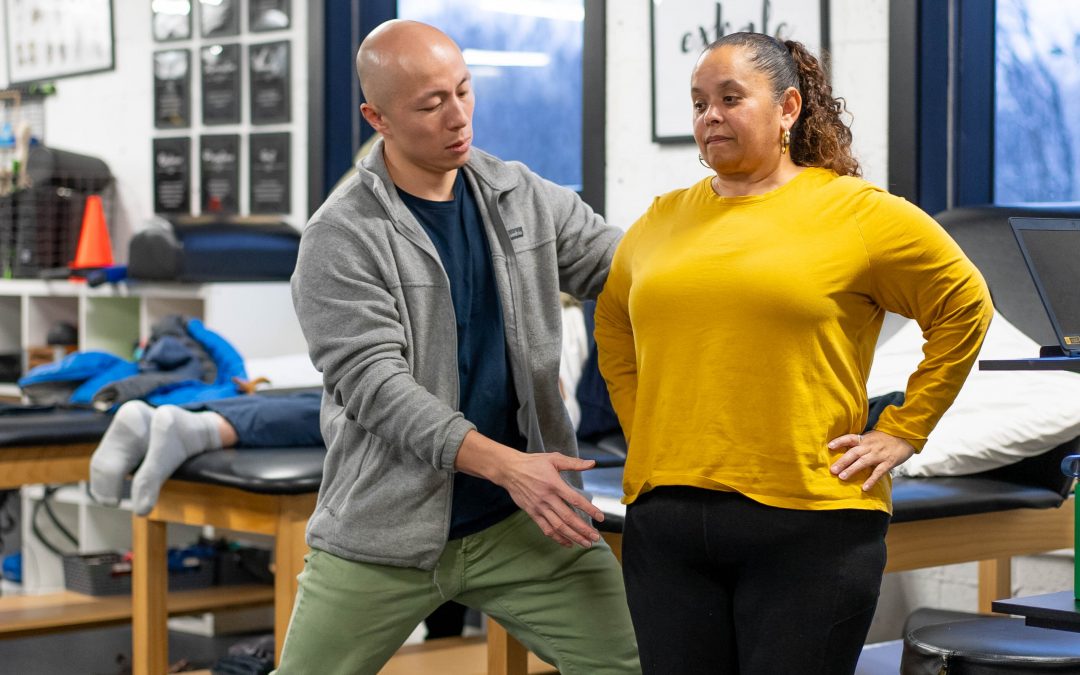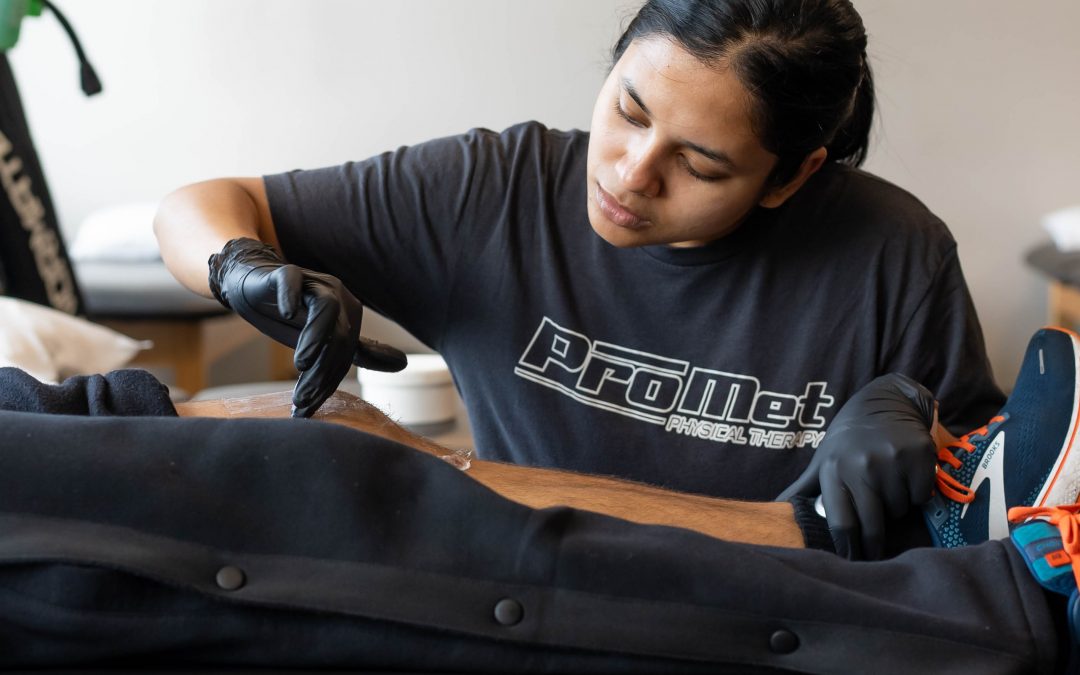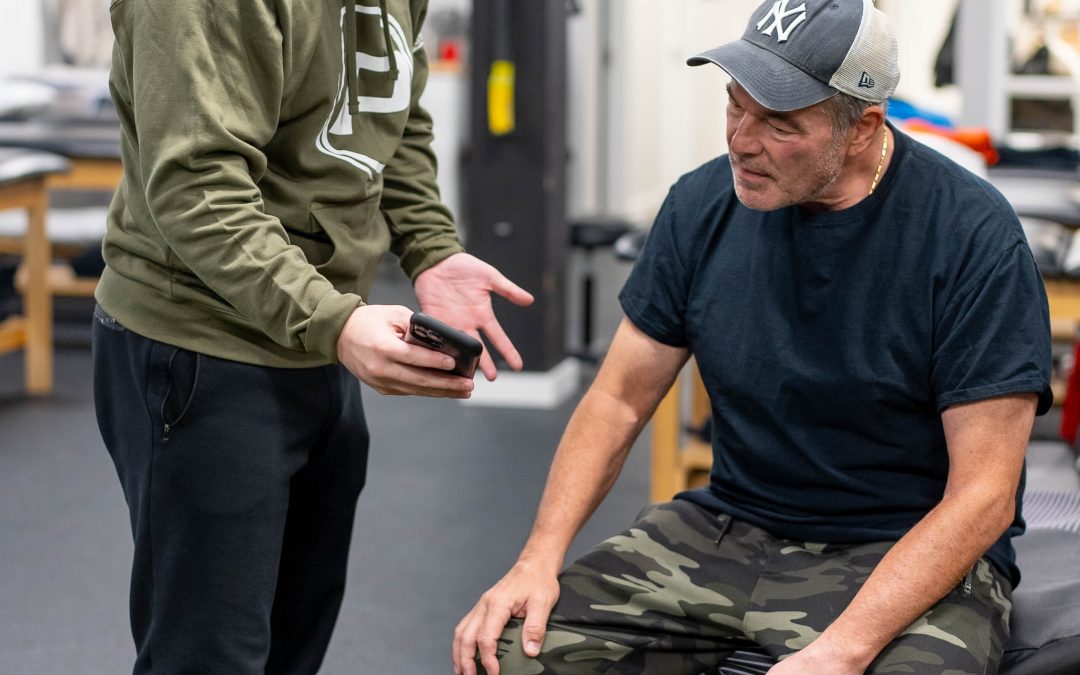The intervertebral disc is an important part of our human anatomy. It is pictured above sandwiched between two bones, called vertebrae, which can be found throughout our spine. Our spine is a made up of 24 vertebrae, all stacked on top of one another with discs between. The discs act as cushions between each vertebra to help absorb shock and prevent our bones from rubbing on top of each other.
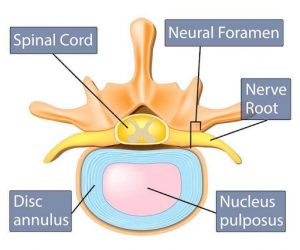
The anatomy of the disc includes two major contents.
The inner structure of the disc is called the Nucleus Pulposus, which is gel-like in nature and accounts for much of the flexibility of the spine.
The outer layer of the disc is called the Annulus Fibrosis, which holds the pulposus in place and accounts for much of the strength of the spine.
A Herniated Disc 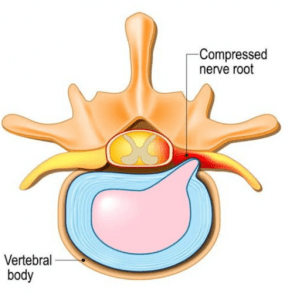
In cases where there is too much pressure on the disc, it may herniate, which means that there is a tear in the annulus fibrosis causing the inner pulposus to seep out of the disc.
When the pulposus leaks out of the disc it may compress upon your spinal cord and nerve root, as seen in the image. Depending on which disc herniates, and therefore, which nerve root it compresses, it can cause radicular pain or issues with sensation into your arms or legs.
The term radicular means radiating, which one may describe as “shooting” pain. Issues with sensation could be described as numbness or tingling in the extremities, a similar feeling as to when you “hit your funny bone” (which is not actually a bone at all but a nerve in your arm called the ulnar nerve!)
Physical Therapy
A herniated disc doesn’t mean you are doomed! It doesn’t mean you need surgery and it doesn’t mean you will experience pain! It is actually quite common for one to have a herniated disc and not experience any symptoms at all. Which tells you that with proper care for your spine, this is something that we can adjust to should it occur.
What a herniated disc does mean, is that you can likely benefit from Physical Therapy! At ProMet PT, our physical therapists can educate you about:
- Why your disc may have herniated in the first place
- What you can do to relieve pain
- How you can increase your strength and flexibility/stability of your spine
- Proper lifting mechanics in order to prevent re-herniation
Book an appointment today to get started at one of our 3 locations!
Katherine Gili, DPT


